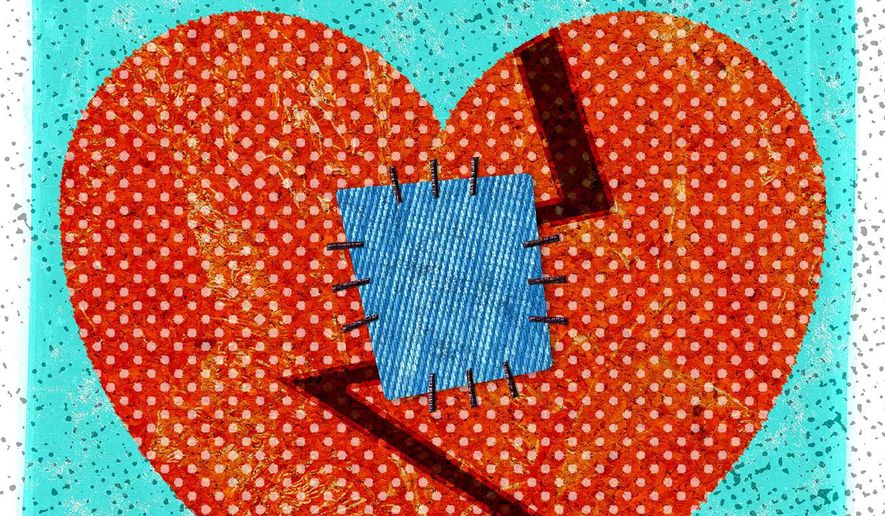OPINION:
This past week I was contacted by a reporter from the Religion News Service. His reason for calling me was to get my views concerning critical race theory. He wanted to know why I opposed it.
I told the reporter that I am against CRT because it is the exact opposite of the Gospel of Christ. “How so?” he asked.
“Well,” I said, “First of all, CRT is grounded in revenge. Second, while it preaches ‘justice,’ it talks nothing of forgiveness, and third, it is driven by conflict rather than confession. Finally, CRT is the opposite of Christianity because it ignores the core message of Christ; it is completely void of forgiveness.”
“I don’t understand,” said my interviewer. “Are you actually saying that all the injustices of our past can be solved by simply telling people to forgive?”
“Well, in a word, Yes!” I said. “You don’t break the cycle of injustice by fomenting more injustice; you break it by telling people to forgive.”
Forgiveness is what sets Christianity apart from other religions. The Gospel of God’s unmerited grace is the antithesis of all opposing world views. It is the direct opposite of the relentless “karma” of Buddhism, for example, or the vengeful retribution of Islam. The message of Christ and his Church stands in juxtaposition to the spite, resentment and demands for “social justice” fomented by CRT.
In my book, “Grow Up! Life Isn’t Safe, but It’s Good,” I tell the story of Brandt Jean and the 2019 trial of Amber Guyger, an off-duty police officer, who was convicted of killing Brandt’s older brother Botham.
After the jury delivered its verdict, the presiding judge allowed Brandt to address Guyger before her sentencing. This young man’s response stunned the courtroom. Looking directly at the woman found guilty of killing his brother, Brandt Jean chose not to talk of justice but instead of forgiveness.
“I wasn’t ever going to say this in front of my family or anyone,” he said, “but I don’t even want you to go to jail. I want the best for you because I know that’s what Botham would want. And … I think giving your life to Christ would be the best thing that Botham would want you to do. Again, I love you as a person, and I don’t wish anything bad on you.”
Everyone expected words of condemnation. Everyone anticipated cries for justice. Everyone thought Brandt would join the crowd in demanding a life sentence for his brother’s murderer. But instead, Brandt chose to forgive, and he wouldn’t be the only one.
After Brandt was finished, his father took the microphone and echoed his younger son’s remarks: “I [feel] the same way. … That is what Christ would want us to do. If you will not forgive, neither will your Father forgive you.”
Rather than demand justice, Mr. Jean and his son extended grace. They turned the other cheek. They forgave. They elevated Christ above the conflict.
The job of the Church is to remind us that we are all sinners and that you, whether you are Black or white, are chief among them! We are all broken, and if you think you’re better than someone else because of “systemic injustice” or “intersectionality,” you stand condemned already.
The good news is that we can rise above all the conflict, resentment and blame. We don’t have to let others control us. We don’t have to be enslaved by the endless cycle of victimization. We don’t have to be held in bondage to sin, ours or anyone else’s. We can forgive. We can be saved!
Saved from anger. Saved from vengeance. Saved from self-righteousness. Saved from ourselves.
Martin Luther once wrote, “For still our ancient foe, doth seek to work us woe; His craft and power are great, and armed with cruel hate, on earth is not his equal.”
John Newton later cried, “There are two things I know: I am a great sinner, and Jesus is a great savior. … Amazing Grace, how sweet the sound that saved a wretch like me.”
The cycle of “cruel hate” is broken only by grace: God’s toward you and yours toward others. And grace is made real only through the act of forgiveness.
Brandt Jean and his dad clearly understood something my reporter friend from the Religious News Service does not.
Simply put, the Gospel is not about justice. It’s not about anyone getting what they deserve.
The story of Christianity is one of grace. It’s a story about forgiving others because that’s what “Christ would want us to do.” It’s a story of a savior who preaches forgiveness and changes the world, while a reporter pops off about “justice” and changes nothing, not even himself.
• Everett Piper (dreverettpiper.com, @dreverettpiper), a columnist for The Washington Times, is a former university president and radio host. He is the author of “Not a Daycare: The Devastating Consequences of Abandoning Truth” (Regnery) and, most recently, “Grow Up: Life Isn’t Safe, But It’s Good.”




Please read our comment policy before commenting.